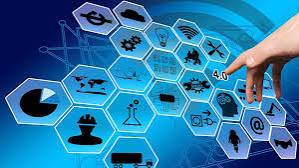Artificial intelligence (AI) has rapidly become one of the most powerful and transformative technologies in today's world. From speech recognition in our smartphones to self-driving cars, AI is revolutionizing various industries and shaping the way we live, work, and interact with technology. The power of AI lies in its ability to analyze massive amounts of data, recognize patterns, and make decisions without human intervention. In this essay, we will explore the significance and impact of AI on our society and its potential to drive innovation and progress in the coming years.
1. One of the key strengths of AI is its ability to automate repetitive and mundane tasks, allowing humans to focus on more creative and strategic activities. As the technology continues to advance, AI-powered systems are increasingly being used to streamline processes and improve efficiency in a wide range of industries, from healthcare to finance to manufacturing. For example, AI-powered chatbots are now being used by companies to provide instant customer support, while AI algorithms are helping doctors diagnose diseases more accurately and quickly.
2. Moreover, AI has the potential to revolutionize the way we interact with technology and the world around us. Virtual assistants like Amazon's Alexa and Apple's Siri are becoming increasingly sophisticated, understanding natural language and helping us with various tasks such as setting reminders, playing music, and controlling smart home devices. In the field of robotics, AI is enabling the development of intelligent machines that can perform complex tasks such as sorting and packing items in warehouses or assisting with surgeries in hospitals.
3. AI is also driving innovation in areas such as transportation, with companies like Tesla developing self-driving cars that can navigate roads autonomously and reduce the risk of accidents. By analyzing vast amounts of data from sensors and cameras, AI algorithms can make split-second decisions to ensure the safety of passengers and pedestrians on the road. This has the potential to revolutionize the way we think about transportation and pave the way for a future where fully autonomous vehicles are the norm.
4. In addition to improving efficiency and revolutionizing industries, AI also has the potential to address major societal challenges such as climate change and healthcare. AI algorithms can analyze data from satellites and sensors to monitor environmental changes and predict natural disasters, helping us better prepare for and respond to emergencies. In healthcare, AI-powered systems can analyze medical images and patient data to diagnose diseases earlier and more accurately, leading to better outcomes for patients and reducing healthcare costs.
5. Despite its potential benefits, AI also raises ethical and societal concerns, such as job displacement and algorithmic bias. As AI systems become more advanced and capable of performing complex tasks, there is a risk that they could replace human workers in certain industries, leading to widespread unemployment and economic disruption. Moreover, AI algorithms have been shown to exhibit bias and discrimination, reflecting the biases present in the data they are trained on. This raises questions about fairness and transparency in AI decision-making and the need for ethical guidelines and regulations to ensure that AI is used responsibly.
In conclusion, the power of AI lies in its ability to analyze data, recognize patterns, and make decisions without human intervention. The technology has the potential to revolutionize industries, drive innovation, and address major societal challenges. However, it is essential that we address ethical and societal concerns related to AI to ensure that it is used responsibly and for the benefit of society. As AI continues to evolve and become more integrated into our lives, it is important that we work together to harness its power for good and create a future where AI works in harmony with humanity.



No comments yet
Be the first to share your thoughts!